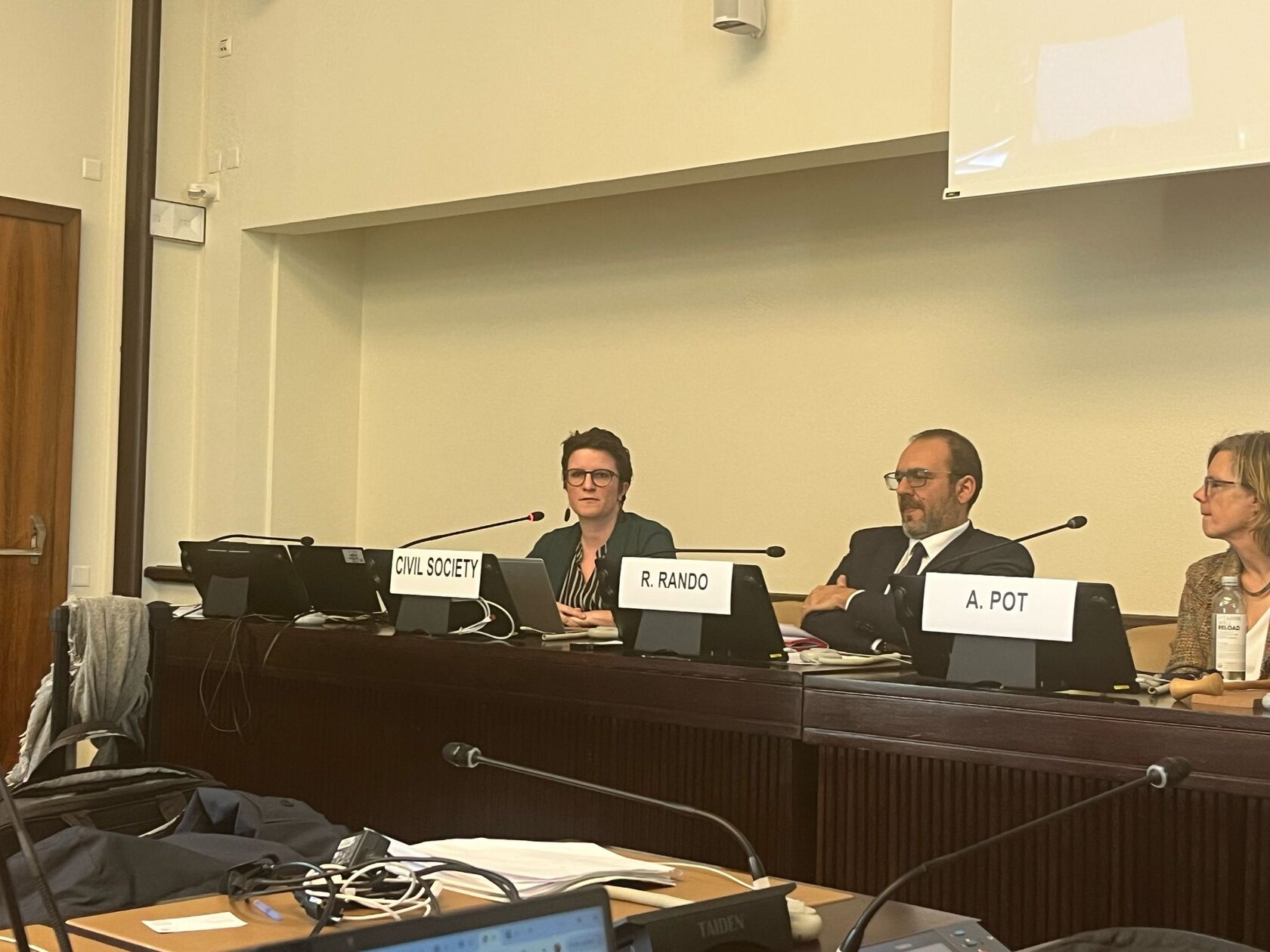Distinguished Delegates,
My name is Rianne Roshier from the Swiss CSO Plattform Agenda 2030 and I am speaking on behalf of the Regional Civil Society Mechanism to share the perspective of the civil society on SDG 17.
The 2030 Agenda faces serious challenges: governments retreating from commitments, wars weakening global solidarity, and funds shifting from sustainable development and human rights to military spending. Yet, sustainable development is essential for resilience and peace and that makes SDG 17 more critical than ever.
Before addressing financing for sustainable development, we want to reassert not only the need for strengthening partnerships and civic space but also for transparency and accountability.
Civic space is essential and it is shrinking—not only through funding cuts but also through the exclusion of CSOs from SDG processes. We call for a strong regional commitment to create an enabling environment for civil society. Governments must uphold their commitments by ensuring that civil society organizations can operate freely and participate meaningfully as partners in discussions and decision-making.
SDG 17 is often poorly reported in Voluntary National Reviews (VNRs), with weak multi-stakeholder accountability. Without transparency, partnerships become symbolic rather than substantive. We urge governments to ensure that VNRs provide comprehensive SDG 17 reporting with meaningful stakeholder engagement and to strengthen peer review mechanisms for mutual accountability.
Now, on the issue of closing the Financing Gap
Let us be clear: Without adequate funding, we cannot expect to achieve the Sustainable Development Goals.
Unfortunately, the financing gap continues to widen. Budget cuts in various countries not only hinder SDG implementation but also force CSOs into competition rather than collaboration.
This is even more alarming when we consider the stark reality of global wealth inequality, with the world’s richest 1%, many residing in our region, now owning more than the poorest 95% combined. The money is here – the question is how to get it to support sustainable development.
To address this, we call for a strong commitment towards financing for sustainable development through: :
The green transition must be a Just transition. It must be inclusive, not deepen inequalities between and within countries, and ensure those furthest left behind are included in the Transition. Too often, large corporations dominate while marginalized communities are excluded. In particular, we call for:
We urge Member States to integrate these recommendations into the Financing for Development Conference and their SDGs implementation.
Civil society stands ready to engage—but we need space, support, and genuine partnerships. Only with trust and shared responsibility is progress made possible.
Thank you.
My name is Rianne Roshier from the Swiss CSO Plattform Agenda 2030 and I am speaking on behalf of the Regional Civil Society Mechanism to share the perspective of the civil society on SDG 17.
The 2030 Agenda faces serious challenges: governments retreating from commitments, wars weakening global solidarity, and funds shifting from sustainable development and human rights to military spending. Yet, sustainable development is essential for resilience and peace and that makes SDG 17 more critical than ever.
Before addressing financing for sustainable development, we want to reassert not only the need for strengthening partnerships and civic space but also for transparency and accountability.
Civic space is essential and it is shrinking—not only through funding cuts but also through the exclusion of CSOs from SDG processes. We call for a strong regional commitment to create an enabling environment for civil society. Governments must uphold their commitments by ensuring that civil society organizations can operate freely and participate meaningfully as partners in discussions and decision-making.
SDG 17 is often poorly reported in Voluntary National Reviews (VNRs), with weak multi-stakeholder accountability. Without transparency, partnerships become symbolic rather than substantive. We urge governments to ensure that VNRs provide comprehensive SDG 17 reporting with meaningful stakeholder engagement and to strengthen peer review mechanisms for mutual accountability.
Now, on the issue of closing the Financing Gap
Let us be clear: Without adequate funding, we cannot expect to achieve the Sustainable Development Goals.
Unfortunately, the financing gap continues to widen. Budget cuts in various countries not only hinder SDG implementation but also force CSOs into competition rather than collaboration.
This is even more alarming when we consider the stark reality of global wealth inequality, with the world’s richest 1%, many residing in our region, now owning more than the poorest 95% combined. The money is here – the question is how to get it to support sustainable development.
To address this, we call for a strong commitment towards financing for sustainable development through: :
- Redistributive measures and stronger progressive taxation such as a billionaire tax. Also, debt cancellation for the Global South would systematically help us shift global inequalities.
- Innovative financing mechanisms that amplify marginalized voices—such as gender bonds, feminist climate funds, and basic income for activists.
- A regulated frameworkcompliant with human rights that allows for greater engagement of the financial sector through inclusive private-public partnerships that prioritize social responsibility.
The green transition must be a Just transition. It must be inclusive, not deepen inequalities between and within countries, and ensure those furthest left behind are included in the Transition. Too often, large corporations dominate while marginalized communities are excluded. In particular, we call for:
- Ensuring the Green Transition does not lead to extractivism and neocolonialism, fuelling armed conflicts, displacement, ecocide, human rights abuses, gender-based violence, and global inequalities.
- Progressive environmental taxation for high-impact industries
- Redirecting harmful subsidies from fossil fuels and exploitative industries to social protection, health, and education.
- Greater financial responsibility from high-emission countries, ensuring they contribute more to global mitigation funds.
- Ensure better inclusion of impacted communities and civil society organisations, and transparency in the Global Gateway.
We urge Member States to integrate these recommendations into the Financing for Development Conference and their SDGs implementation.
Civil society stands ready to engage—but we need space, support, and genuine partnerships. Only with trust and shared responsibility is progress made possible.
Thank you.
